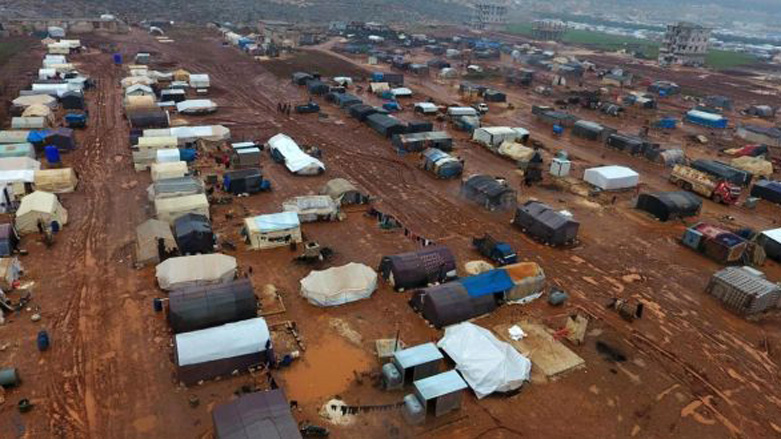Syrian Kurds criticize UN decision limiting humanitarian aid to Syria

ERBIL (Kurdistan 24) – A Syrian Kurdish party on Saturday criticized the recent decision by the United Nations Security Council (UNSC) to restrict the number of border crossings that can be used to bring aid to northeastern Syria, widely seen as an attempt by Russia to limit assistance to the area in support of Damascus.
“The United Nations has voted to limit the entry of humanitarian aid through the border crossings under the control of Turkey and the Syrian regime, clearly preventing delivery of aid to those in need,” Aldar Xelil, head of the Diplomatic Relations Office for the Movement for a Democratic Society (TEV-DEM), said in a public statement.
“On the other hand, this measure contradicts the United Nations’ neutrality and violates its charter,” he continued, “as happened previously with respect to the Constitutional Committee which in last September excluded the Autonomous Administration from negotiations in Geneva and elsewhere.”
The senior Kurdish official called on the UNSC to be responsible and support the northeast of Syria with aid, calling the recent vote a dangerous development.

In late December, Russia vetoed a resolution on Syria for the 14th time since the start of the nation’s protracted conflict in 2011 to block cross-border humanitarian aid deliveries from Turkey and Iraq that would benefit large numbers of Syrian civilians.
Read More: Russia, China veto UN vote, limiting humanitarian aid to Syria
Since 2014, millions have relied on humanitarian and medical supplies brought into the country via four border crossings with Turkey, Iraq, and Jordan.
The resolution called for renewing operations, excluding one border crossing in Jordan, for up to a year. Thirteen countries voted in favor, with permanent UNSC member states China and Russia casting the votes that blocked the measure.
The 15-member Security Council on Friday allowed cross-border aid deliveries to continue from two places in Turkey (Bab al-Hawa and Bab al-Salameh, connecting Turkey to the northern Syrian city of Idlib), but dropped the Yaroubiyeh crossing which connects areas in Syria held by the Kurdish-led Syrian Democratic Forces (SDF) eastward to Iraq. Furthermore, a Jordanian border point was also closed for aid deliveries.
“Yaroubiyeh has only brought in limited quantities of aid - it’s basically all medicine - while the Bab al-Hawa and Bab al-Salameh crossings into Turkish-dominated northwestern Syria have been used much more frequently by the UN,” Aron Lund, a fellow with the Century Foundation, told Kurdistan 24.
“In the end, these two Turkey-Syria crossings were kept and Yaroubiyeh has now been shut down.
This means, in practice, that the UN can no longer use Yaroubiyeh to bring crucial aid into Syria without first getting the Syrian government’s permission.
“The Russians want to restore control to Assad’s government, but are also mindful of Turkey’s concerns about a worsened crisis in areas like Idlib,” Syria analyst Lund said.
“They are also eager to increase the Syrian government’s control over the northeast and over SDF, to give it more leverage in its talks with SDF,” he added. “The events in October and November and Trump’s talk about ‘securing the oil’ has clearly angered the Russians and they now felt even more motivated to shut down UN access to northeastern Syria.”
The Syrian government already allows some aid to reach northeastern Syria by land or air, but it has banned aid workers from sending medical supplies to the region, such as surgical equipment.
The UN says its Yaroubiyeh operation previously supplied 40 percent of the medical supplies used in SDF-run areas.
Lund continued, “That medical aid is no longer going to reach northeastern Syria, unless the SDF can persuade Damascus to let it be trucked in from government-controlled areas. And that will probably require something in return.”
“It’s ultimately about who should control northeastern Syria. It’s a way to use aid as leverage, to increase SDF’s dependence on Damascus, and to make it less sustainable for SDF to work with Assad’s American enemies.”
Editing by John J. Catherine
